Since 1996
working for a better world
BEGINNINGS OF BWC
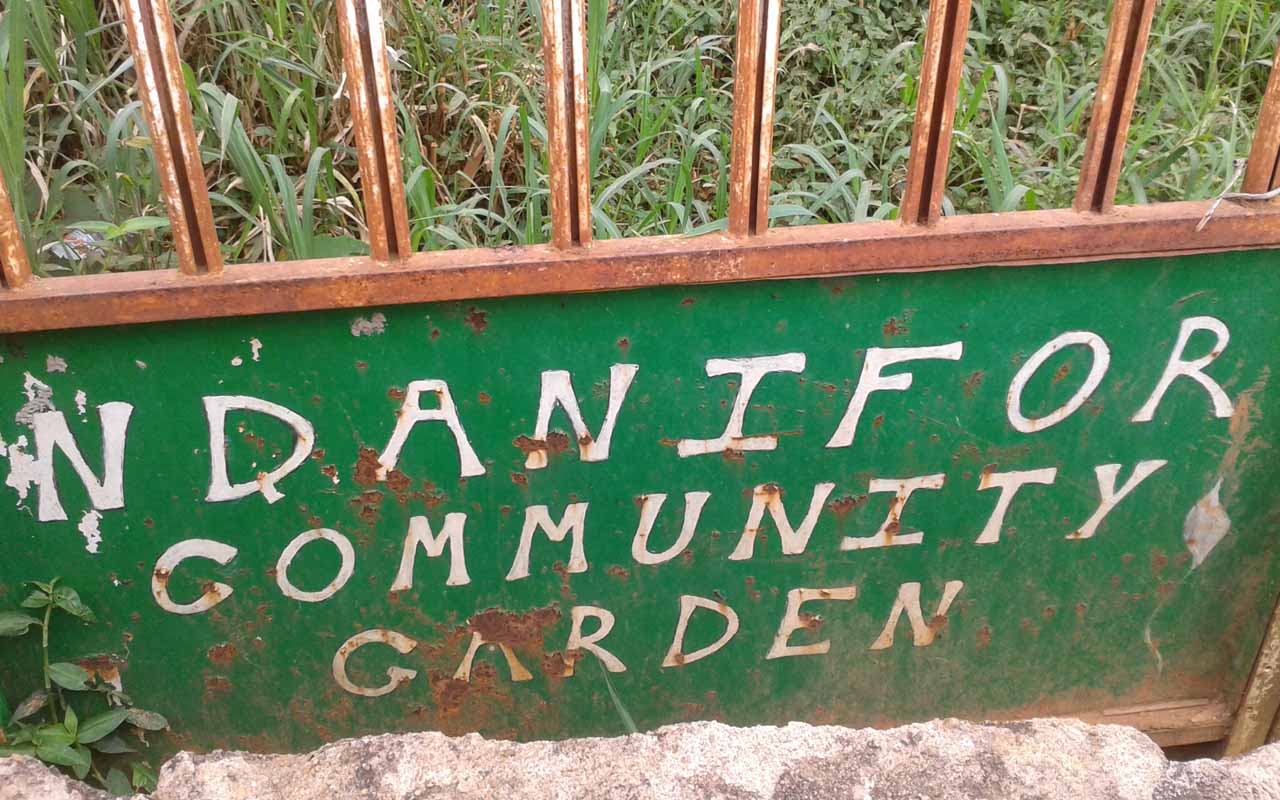
Growing up in a farming community in Bafut, where gardening was a compulsory subject in primary school, Joshua Konkankoh developed an early passion for working on the land.
Until 1996, Konkankoh was running a gardening company called Royal Gardens. Besides selling gardening services, he bought 5 acres of land in a previous landfill, in Yaoundé, and created a community garden for the youth to have access to land to develop their own pathways in life. The site was located on a riverbed and the landfill provided lots of compost material. The urban garden used rural agricultural techniques. The site was visited by many people and counted with the collaboration of numerous volunteers. Konkankoh created an innovative volunteer system: people were contributors to a pool of skills, labour, food, knowledge, while at the same time being beneficiaries of it.
In 1996, BWC was created. Royal Gardens was being taxed out of business. By founding a non-profit organisation, the work could carry on by founding the NGO Better World Cameroon. BWC was also a way to prove to the youth that it is possible to live along the lines of volunteer collaboration and a not-for-profit approach similar to the village community cooperative structure called “Njangi”.
The francophone culture in Yaounde rejected the values preached through the community garden. Konkankoh’s team was expelled from the site and the community garden was destroyed in 2012.
THE BIRTH OF NDANIFOR PERMACULTURE ECOVILLAGE
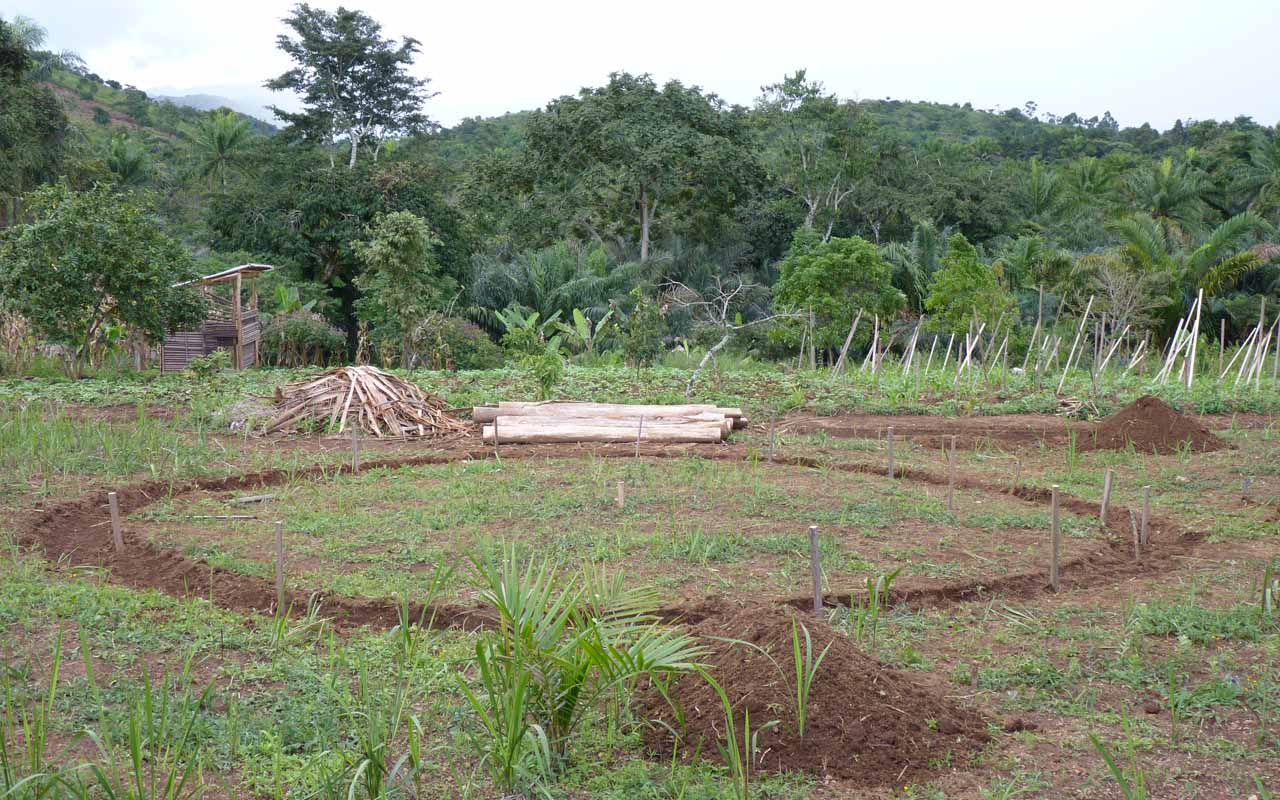
Starting in 2012, Ndanifor Permaculture Ecovillage came to life on a 5-acre land in the region of Bafut. It was BWC’s first demonstration site, a place where the principles for a sustainable culture could be implemented and made visible to all.
There was a need to spiritually empower the youth and bring back self-determination. This was already being done through reviving the spiritual traditions of Rite of Passage. Traditions have authority in Bafut. “The Spirit of Ndanifor: once you live by these principles, you are protected by your ancestors.” The ‘Spirit of Ndanifor’ is the native Bafut term (used in the kingdom of Bafut) to describe what is called the ‘Sacred Matrix’ in Tamera Peace Research Center in Portugal, and it is in the core of all these principles we have been applying since its birth.
Also in 2012, Joshua Konkankoh was invited to a GEN (Global Ecovillage Network) Symposium in Egypt on African Ecovillages. GEN considered BWC one of the projects in Africa that could fit the description of an ecovillage. GEN gave then Konkankoh the Power of Attorney, the role of an ambassador and advocate for GEN and for the concept of ecovillages.
DEVELOPING THE NDANIFOR PERMACULTURE ECOVILLAGE
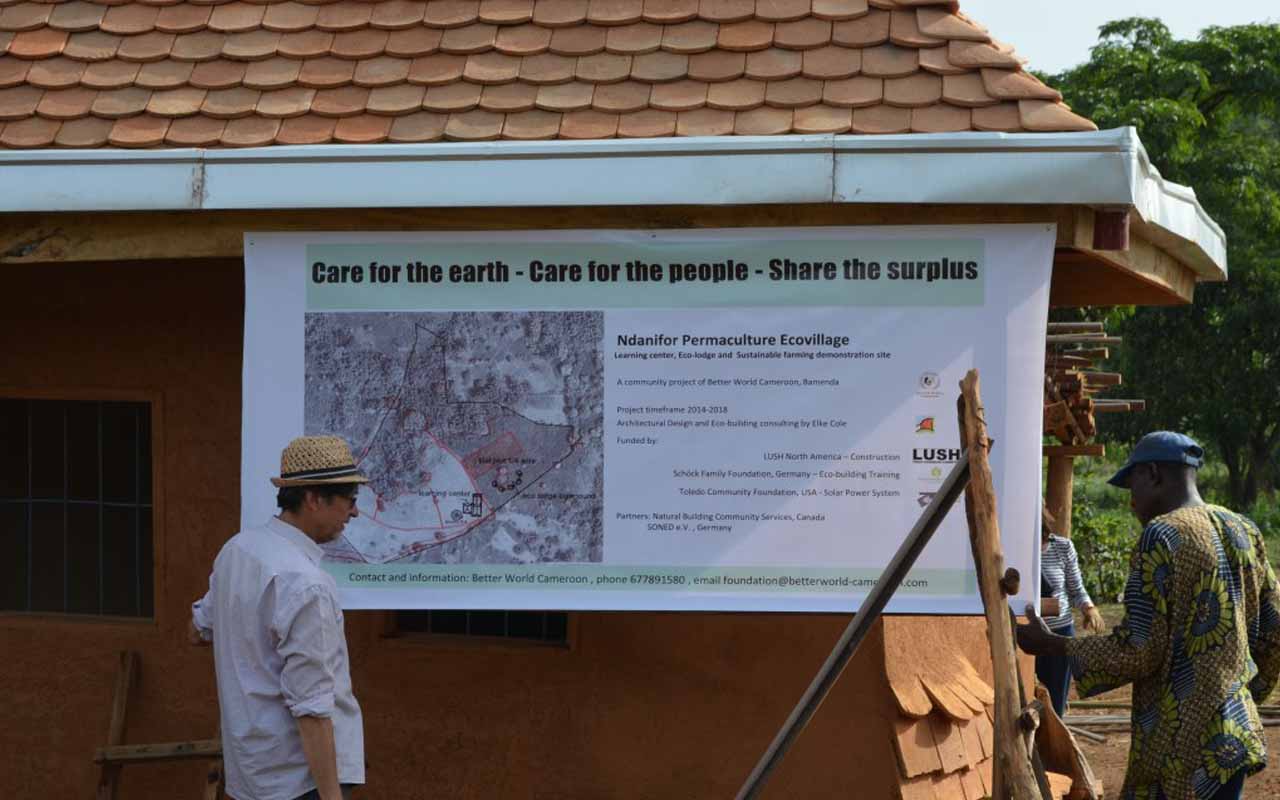
From 2012 to 2013, 200 different young people worked with Ndanifor Permaculture Ecovillage through different kinds of collaboration: work on the land, conceptual work, youth exchange missions abroad, etc. New concepts were transmitted and absorbed through practical implementation.
Ndanifor Permaculture Ecovillage adopted a local orphanage named ‘God is Great’, aiming to address this very vulnerable group of young children and integrating them into this process. The goal was to kickstart this transition by involving young people, not only the land. They went on to build ecological buildings, greenhouses and water catchment areas, support reforestation and food forestry while implementing permaculture techniques, they started with mushroom production and even created structures for eco-tourism.
On the business end, in Ndanifor Permaculture Ecovillage we started producing fair-trade products, which is still running despite the current civil war. The land is full of high-value agriculture products (HVAP), such as turmeric, ginger and citronella.
A cooperative BetterCOOP (Better World Permaculture Cooperative Society) was registered in 2012 and started with the building of a transformation house. It isn’t yet completed and now has no maintenance – like so many other buildings in Ndanifor Permaculture Ecovillage after the war broke out in 2016 and the whole place was looted by the military.
Every year, Ndanifor Permaculture Ecovillage would host 2 main events: one Youth Exchange Program and one EDE course. More recently we also started certifying trainers through the TOT (Training of Trainers) program.
THE BAFUT PROJECT
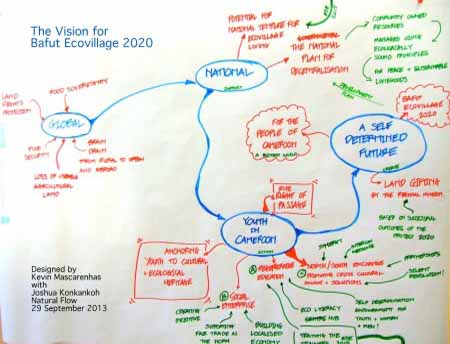
In 2013, Konkankoh was invited to go to Siebenlinden, Germany, and participate in an EDE course. In a month-long process, together with other experts, he developed the vision of the “Bafut Project”.
The Bafut Project is the idea of transforming the whole region of Bafut from traditional to resilient, vibrant, sustainable, eco- and culture-friendly villages. For transformation to successfully happen, the following goals are to be addressed:
- Creating “Training of Trainers” (TOTs) programs: Training people that will help bringing in solutions and knowledge to and from other places;
- Developing food sovereignty, local economy and landscape regeneration;
- Combining indigenous and scientific knowledge in Bafut, giving birth to the concept “Permaculture, the African way”.
“Bafut 2020” or “Bafut Ecovillage”, was the name given to the vision of bringing the whole region of Bafut, with 54 villages, into a regional model. Once the model site “Ndanifor Permaculture Ecovillage” is completed, it will lay the foundation for this work to be replicated through the remaining 54 villages of Bafut, and who knows if not to inspire other similar projects in the African continent.
Bafut is a UNESCO heritage site. During times of colonization, the kingdom of Bafut was the only indigenous authority recognised by the colonial powers and allowed to remain a governing organ in the region of Bafut. Now it is the source for a beautiful social, spiritual, cultural and ecological transformation..
BWC’S APPROACH
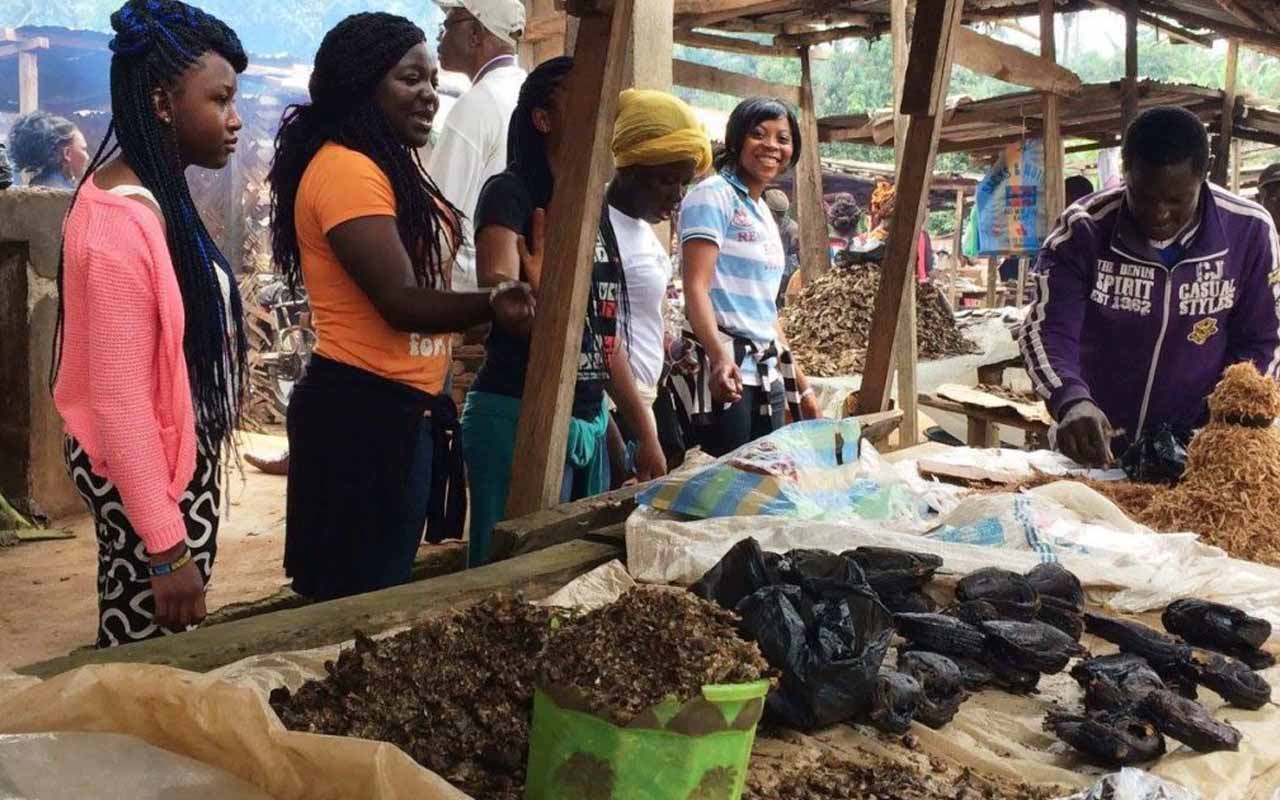
Better World Cameroon is an attempt of a local response to a global crisis. BWC sees cooperatives as a model for community development and a path to:
- Create food sovereignty: Colonization took over the land and built a system dependent on modern forms of slavery and disruption of people’s culture. The youth got disconnected from the land, as they saw no benefit in participating in this form of agriculture. Permaculture brought dignity and sovereignty back to young farmers;
- Promote landscape regeneration through permaculture practices;
- Rebuild the local economy and values.
BWC has been working to heal youth apathy about national life, by focusing its work on the re-establishment of the connection of youth with their land, their food sources and their cultural heritage. Food is a core element of any culture. All cultural traditions circle around food. BWC educates people about the cruelties behind consumer goods, inflicted upon their fellow brothers and sisters and to the land. We want to bring ethics back to food.
Priority: Firstly, to secure the food. Then people can think deeper and reconnect with their ancestors. Only when people aren’t hungry and poverty-stricken, they can think on a more comprehensive level about the creation of a sustainable culture.
BWC is striving to create a model site that will be relevant to the whole African continent.

